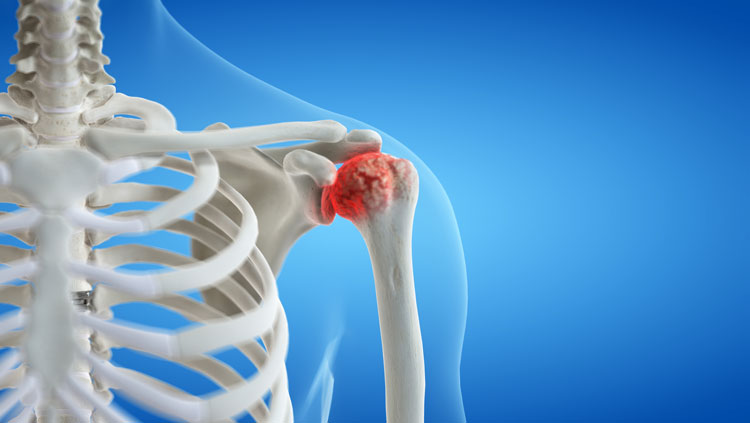Shoulder Arthritis

What is it : Shoulder arthritis is when the cartilage layer on the surface of the shoulder joint wears away and the result is pain and stiffness. The pain can be constant and have an element of night pain. The cause of the shoulder arthritis could be ‘primary’ which doesn’t have a cause, it could be due to previous injury to the shoulder or fracture, rheumatoid arthritis or due to the rotator cuff tendons not working (rotator cuff arthropathy). The stiffness and the pain can be very debilitating and can cause loss of function.
Management : Shoulder arthritis can be managed non-surgically with rest, activity modifications, physiotherapy, simple pain relief such as paracetamol and anti-inflammatory medication or cortisone (steroid) injection. We would encourage you to continue non-surgical management till your pain is affecting your sleep, mood or function. The surgical options for shoulder arthritis can range from having an arthroscopy (key hole) surgery to clean the joint and release some of the tightness to having joint replacement surgery. A shoulder replacement can be just replacing the ball (humeral head) which is called a hemiarthroplasty of the shoulder or a total shoulder replacement, where both the ball (humeral head) and the socket (glenoid) are replaced. There are several types of total shoulder replacements – anatomic and reverse. A shoulder replacement is very effective in relieving your pain and you will be more comfortable when lifting your shoulder up.
Post-operative : After a shoulder replacement You will generally have a nerve block from the anaesthetist on the day of your operation and this will tend to last approximately 12 hours. Once it wears off you will be given tablet pain relief. You will be in a sling when you leave hospital. We will check your wound at one week and you will be allowed to start some movement of your shoulder out of the sling. Most restrictions will be lifted at 6 weeks but there will still be no heavy lifting or repetitive movements.